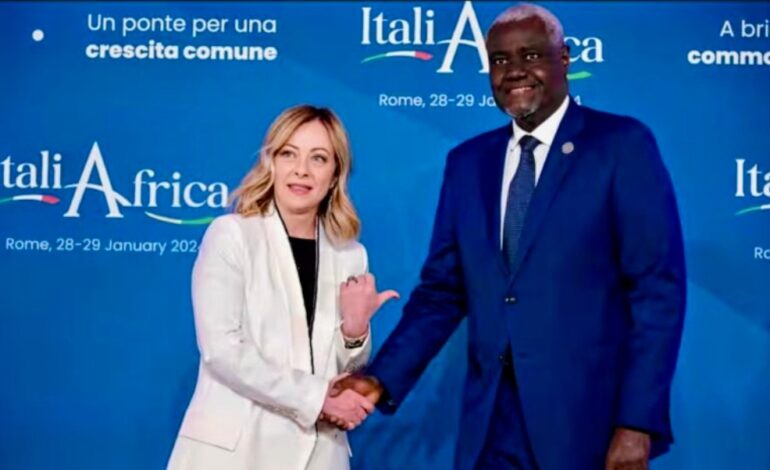
Faith Nyasuguta
Moussa Faki, the Chair of the African Union Commission, has welcomed Italy’s commitment to strengthening relations with the African continent.
However, Faki emphasized the need for more than just promises, calling for a “paradigm shift” to establish a new model of partnership. In a resolute statement, Faki declared, “Africa does not want to reach out. We are not beggars.”
This move underscores the importance of tangible actions and a departure from traditional narratives of aid and charity.
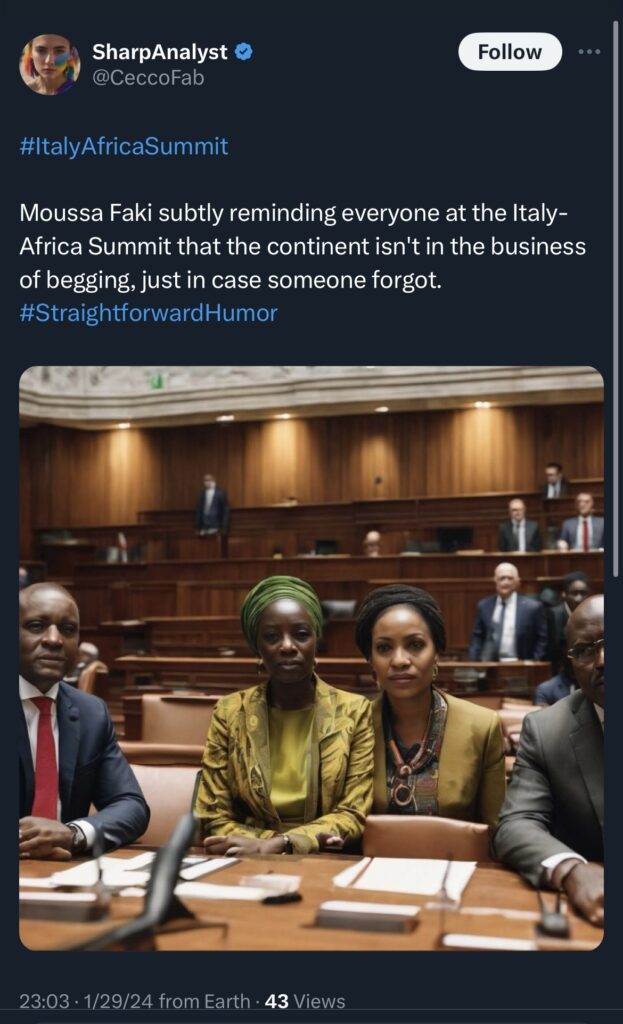
The sentiments follow the focal point of the summit where Italian Prime Minister Giorgia Meloni unveiled the “Mattei plan,” a strategic initiative aimed at fostering a symbiotic relationship between Italy and African countries.
The plan, named after Enrico Mattei, the founder of oil company Eni, is inspired by Mattei’s advocacy in the 1950s for Italy to support African nations in developing their natural resources and improving their economies.
The Italy-Africa summit in Rome has unfolded as a significant diplomatic event, with leaders and representatives from 45 African nations gathering to explore enhanced collaboration.
The summit witnessed the participation of key European Union leaders, including Ursula von der Leyen, President of the European Commission, Charles Michel, President of the European Council, and Roberta Metsola, Head of the EU Parliament. The presence of EU leaders underscored Europe’s collective support for Italy’s initiative to deepen ties with Africa.
Giorgia Meloni outlined the core elements of the Mattei plan, signaling a substantial commitment of over €5.5 billion for investments in various sectors such as energy, education, health, and infrastructure.
The Italian prime minister emphasized a vision of cooperation among equals, aiming to dispel any notions of predatory impositions or a charitable stance toward Africa. Meloni seeks to rewrite the narrative surrounding Africa, challenging past portrayals of the continent as solely impoverished. Instead, she highlighted Africa’s abundant natural resources and its youthful population as assets.
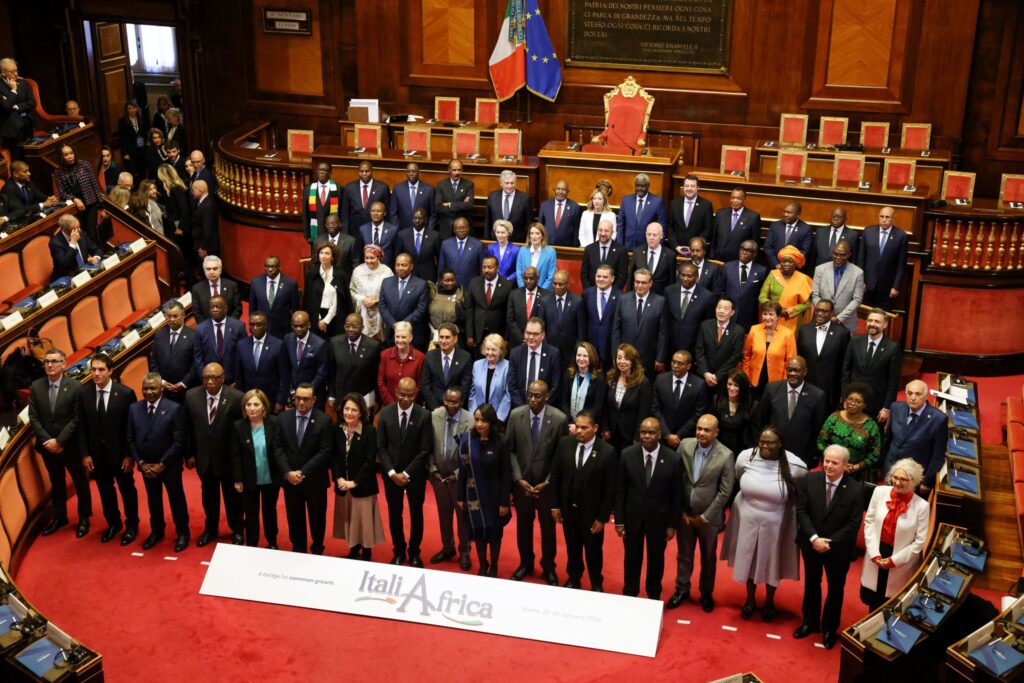
The Mattei plan, unveiled by Meloni after her far-right government assumed office in October 2022, aligns with Italy’s ambition to position itself as a prominent energy hub as Europe reduces dependence on Russian gas.
A pivotal aspect of the plan involves Italy providing support for African economies with the expectation of curbing the flow of migrants from the continent. This exchange forms a critical part of Meloni’s electoral promises, emphasizing the idea that people migrating from Africa should be assisted in their home countries.
Addressing the issue of migration, Meloni asserted the need to combat human trafficking and acknowledged individuals’ right not to be forced to migrate for a better life. By framing the plan as an opportunity to address the root causes of migration, Meloni seeks to garner support for her vision of a cooperative and mutually beneficial relationship between Italy and African nations.
Despite Meloni’s aspirations, critics express skepticism about the plan’s execution and raise questions about its reliability and credibility. Riccardo Magi, the president of the small leftwing party Più Europa, highlights existing confusion about the plan’s objectives.
Concerns persist over the efficacy of addressing the root causes of migration and whether the plan can genuinely contribute to the development of African nations.
Anna Bono, a professor of African history, offers cautious optimism about the Mattei plan but stresses the importance of finding African leaders committed to authentic development. The success of the plan, she suggests, relies on moving beyond the rhetoric and ensuring that African nations are not merely seen as properties to be exploited.
In a separate development, Albania’s constitutional court ruled in favor of a controversial deal signed with Italy to host holding centers for people rescued in Italian waters. The agreement, announced by Meloni in November, faced obstacles when the constitutional court blocked its ratification.
However, the recent court ruling declared that the agreement does not harm Albania’s territorial integrity, paving the way for further legislative approvals.
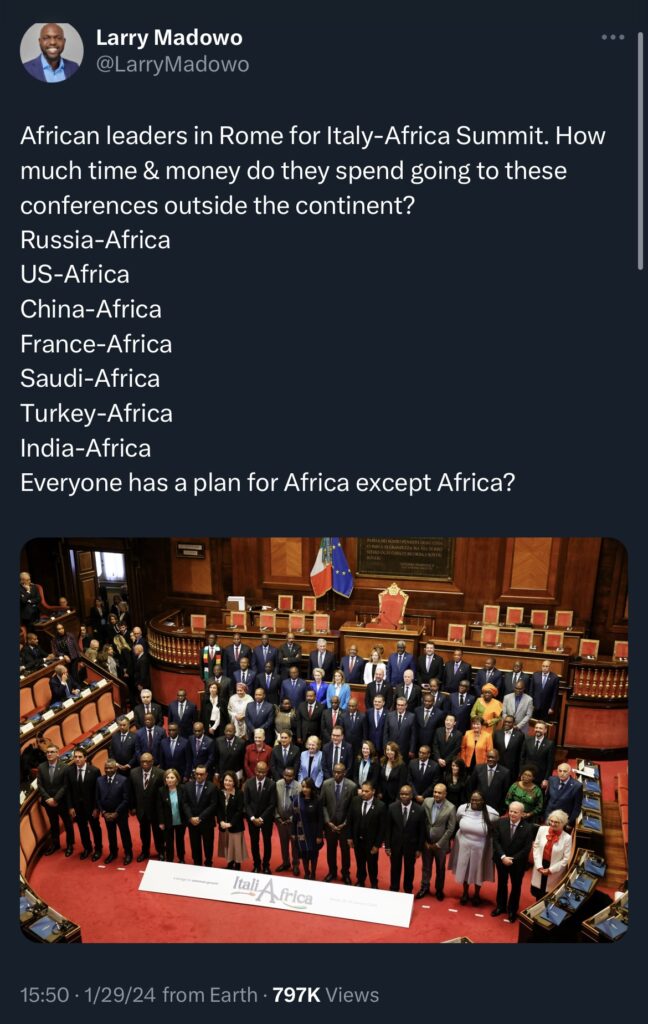
The Italy-Africa summit and the Mattei plan mark a significant diplomatic endeavor, presenting an opportunity for collaboration, economic development, and addressing migration concerns. However, challenges abound in translating promises into concrete actions, ensuring genuine cooperation, and navigating the legal complexities associated with related agreements.
The summit’s success hinges on effective implementation and a commitment from both Italy and African nations to foster mutually beneficial relationships in the long term.
RELATED:



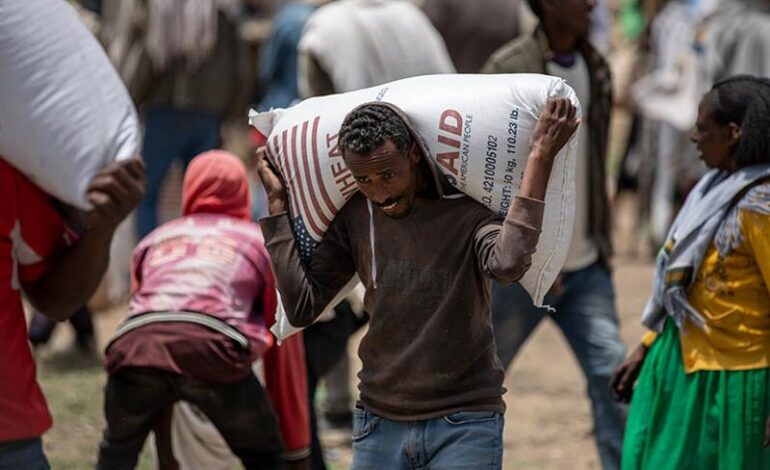

1 Comment
Actions speak louder than words. You are BEGGARS, a lack of vision, corruption and mismanagement of Africa’s resources.
Every western country has a plan for you except yourselves – pitiful.